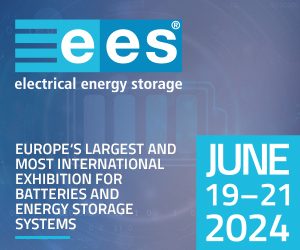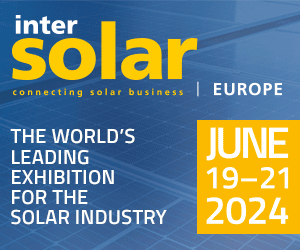Teijin Limited have developed the world's first technology to integrate silicon onto general-purpose plastic substrates
Teijin's world first silicon-on-plastic integration technology
0Teijin Limited have developed the world’s first technology to integrate silicon onto general-purpose plastic substrates, working in cooperation with NanoGram Corporation (NanoGram), a world-leading company in the development of nano materials.
The technology has promising applications in next-generation energy and electronics, including solar cells and thin film transistors for liquid crystal displays (LCD TFT). It is expected to help reduce the weight of these products, as well as enhance their flexibility and environmental sustainability.
Conventional silicon devices generally are manufactured onto a glass or a silicon substrate, but many electronics manufacturers are seeking ways to replace such substrates with thinner, lighter and flexible plastic substrates. Due to their low heat stability, however, general-purpose plastic substrates cannot withstand the conventional silicon sintering process, which has a high temperature of 500-600ºC. The challenge has been to develop a low-temperature silicon sintering process of below 200ºC.
Teijin and NanoGram entered into phase 1 of a technology development agreement in February 2009 to develop silicon-on-plastic integration technology. Thereafter, the technology for the sintering of silicon nanoparticles onto polycarbonate substrate at low temperature was developed, and then a silicon-on-plastic prototype was exhibited. Teijin and NanoGram are the first to achieve these results.
Further improvements of the prototype are expected to contribute to low-weight solar cells and LCDs that are at least 50% lighter than current models. Such weight reductions also will help to lower CO2 emissions during the transportation of these products.
The companies subsequently entered into phase 2 of their technology development agreement to establish silicon-on-plastic integration technology comparable to that of amorphous silicon or organic semiconductors. Efforts will focus on areas such as the development of solar cells and LCD TFT.
Teijin plans to penetrate in the silicon market, in the fields of solar cells and LCD TFT, which are expected to expand to 700 billion to 1 trillion yen by around 2018. In the future, the company will use its bioplastics as a new type of plastic substrate.
For more information, NanoGram will be talking at Europe’s largest event on the topic – the IDTechEx Printed Electronics Europe conference and tradeshow in Dresden, Germany on April 13-14 2010. See www.IDTechEx.com/peEurope for details.
About the Teijin Group
Based in Tokyo and Osaka, Japan, Teijin is a global technology-driven group operating in five main fields: synthetic fibers (polyester fibers, carbon fibers and aramid fibers); films and plastics; pharmaceuticals and home health care; trading and retail; and IT and new products. Teijin Limited, the holding company for the Teijin Group, is listed on the Tokyo and Osaka stock exchanges. The group had consolidated sales of USD 9.4 billion (JPY 943.4 billion, USD 1=JPY 100) in fiscal 2008 and employs 19,453 people worldwide, with 169 companies around the world.
About NanoGram Corporation
Established October, 1996 with approximately 65 employees (December, 2008). A leading developer and manufacturer of advanced products and solutions for optical, electronic and energy applications. For more information, please visit www.nanogram.com










